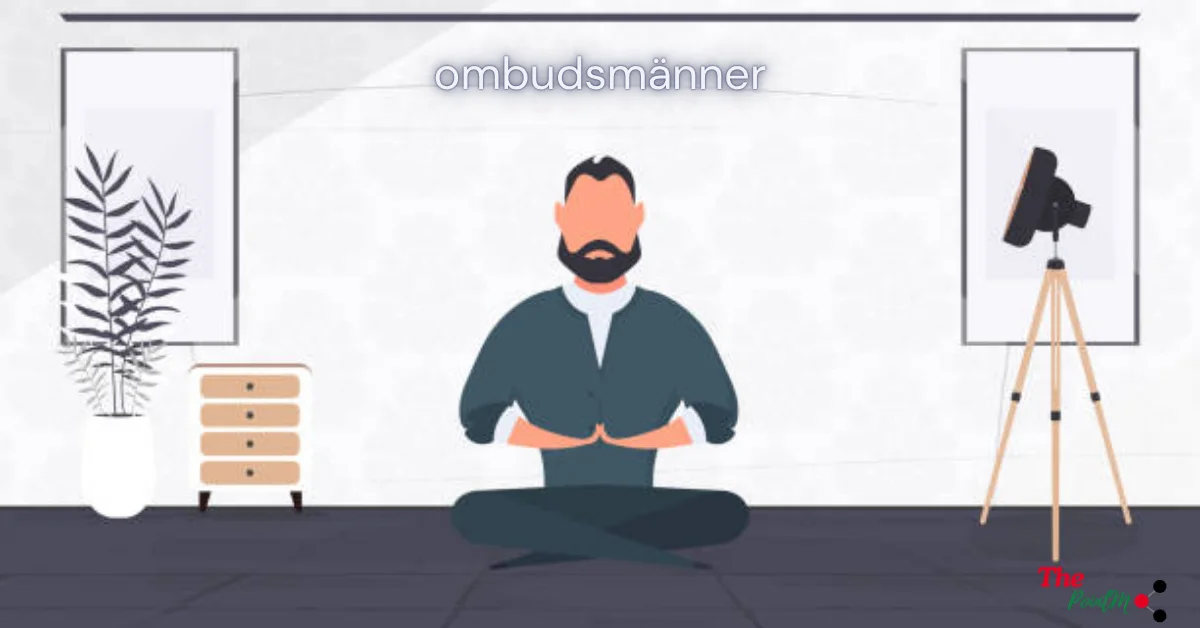Introduction to Ombudsmen
Imagine a world where conflicts are resolved not through lengthy legal battles, but with understanding and dialogue. This is the essence of the role played by ombudsmänner. These impartial mediators act as bridges between individuals and organizations, ensuring that grievances are heard and addressed fairly. The concept of an ombudsman may seem modern, but its roots run deep in history. As we delve into this fascinating field, you’ll discover how these vital figures foster harmony in diverse settings—from government agencies to educational institutions—and why their impact on society is more crucial than ever. Let’s explore the art of mediation through the lens of our dedicated ombudsmänner!
History and evolution of Ombudsmen
The concept of ombudsmen traces back to Sweden in the early 19th century. Established in 1809, the first ombudsman was meant to act as a bridge between citizens and government, ensuring accountability.
As societies evolved, so did the role of these impartial mediators. Other countries recognized their value and began adopting similar models. By the mid-20th century, nations around the globe had developed their own versions.
Ombudsmen expanded beyond governmental functions into sectors like education and healthcare. Today, they serve various organizations, helping resolve disputes without resorting to litigation.
Technology has also transformed this field. Online platforms now allow for more accessible mediation processes. The evolution continues as ombudsmänner adapt to modern challenges while remaining committed to neutrality and fairness in conflict resolution.
Role and responsibilities of an Ombudsman
The role of an ombudsman is multifaceted. At its core, it involves providing a neutral space for individuals to voice their concerns and grievances.
Ombudsmen serve as independent investigators, examining complaints impartially. They gather facts from all parties involved and ensure that the process remains fair. This transparency builds trust in the mediation process.
An important responsibility is to provide recommendations based on findings. These suggestions aim to resolve disputes effectively while fostering better communication between parties.
Additionally, they educate organizations about best practices in conflict resolution. By promoting awareness, ombudsmen help prevent issues before they escalate into formal complaints.
They also play a crucial role in maintaining confidentiality throughout the dispute resolution process. Protecting sensitive information encourages open dialogue and honesty among those seeking assistance.
In essence, ombudsmen act as vital intermediaries who facilitate understanding and promote equitable solutions.
Types of issues handled by Ombudsmen
Ombudsmen are versatile problem-solvers. They tackle a wide range of issues, ensuring fairness and resolution in various sectors.
In public service, ombudsmänner address complaints related to government actions or policies. Citizens often seek their help when they feel treated unjustly.
The corporate world also benefits from these mediators. Ombudsmen handle disputes between employees and management, promoting workplace harmony.
Education is another key area. Students may approach an ombudsman for issues like discrimination or academic grievances, seeking impartial support.
Healthcare-related concerns are significant too. Patients can raise complaints about services received or treatment quality with the assistance of an ombudsman.
Each type of issue reflects the unique role that these professionals play in advocating for justice and equity across different spheres of life. Their expertise fosters trust in institutions by addressing grievances effectively.
Benefits of using an Ombudsman for dispute resolution
Utilizing an ombudsman for dispute resolution offers numerous advantages. One key benefit is impartiality. Ombudsmen act as neutral parties, ensuring that both sides feel heard and respected.
Their expertise in conflict resolution can streamline the process significantly. They often possess specialized knowledge in specific areas, which can lead to more effective solutions tailored to the issues at hand.
Confidentiality is another crucial aspect of their service. This encourages open dialogue without fear of repercussions, fostering a safe environment for discussions.
Additionally, using an ombudsman can save time and resources compared to traditional legal routes. Their informal mediation processes are quicker and less costly, making them an attractive option for many individuals and organizations alike.
Engaging with an ombudsman fosters trust within communities or organizations by demonstrating a commitment to fairness and accountability in resolving disputes.
Examples of successful mediation by Ombudsmen
Ombudsmänner have a remarkable track record in resolving conflicts across various sectors. One notable case involved a university dispute, where students felt unfairly treated by administrative decisions. The ombudsman facilitated discussions between the parties, leading to policy changes that improved communication and transparency.
In another instance, an employee grievance within a large corporation was brought before an ombudsman. Through careful mediation, the issues were addressed amicably without escalating into legal battles. Both sides left satisfied with the outcome.
Healthcare disputes also benefit from ombudsmän intervention. A recent case saw patients voice concerns about service quality at a local clinic. The ombudsman organized meetings with stakeholders to discuss improvements, resulting in enhanced patient care protocols.
These examples showcase how effective mediation can foster understanding and lead to positive change when handled by skilled mediators like ombudsmän.
How to become an Ombudsman
Becoming an ombudsman requires a unique blend of skills and qualifications. First, individuals usually need a strong educational background in law, public administration, or social sciences.
Experience in conflict resolution or mediation is highly valuable. Many successful ombudsmänner have backgrounds in legal practice, advocacy, or community service.
Certifications can enhance your credibility. Various organizations offer training programs specifically aimed at developing mediation skills and understanding the role of an ombudsman.
Networking plays a crucial role as well. Engaging with current professionals can provide insights into the field and potential job opportunities.
Cultivating qualities such as empathy, neutrality, and effective communication are essential for anyone looking to excel as an ombudsman. Building these traits will help navigate complex disputes more effectively while maintaining impartiality.
Challenges faced by Ombudsmen and how to overcome them
Ombudsmen often navigate a complex landscape filled with challenges. One major hurdle is the lack of awareness among the public about their role. Many individuals may not know they exist or how to reach out for help.
Additionally, balancing impartiality while advocating for fairness can be tricky. An Ombudsman must remain neutral, yet still ensure that all parties feel heard and validated. This requires exceptional communication skills and emotional intelligence.
Another challenge is resource limitations. Many Ombuds offices operate with limited staff and funding, impacting their ability to handle cases efficiently. To overcome this, advocacy for increased resources is vital.
Networking with other organizations can also provide support and share best practices in mediation techniques. Engaging in continuous training helps enhance skills needed to resolve disputes effectively while maintaining integrity throughout the process.
Conclusion
Ombudsmänner play a crucial role in fostering fair resolution of disputes across various sectors. Their impartial mediation skills bridge gaps between conflicting parties, enabling effective communication and understanding. The history and evolution of ombudsmen highlight their growing importance in modern society, adapting to the needs of citizens seeking justice.
As advocates for transparency and fairness, ombudsmänner handle a wide range of issues—from government grievances to corporate complaints—ensuring that all voices are heard. The benefits they offer go beyond mere conflict resolution; they promote trust in systems while saving time and resources for everyone involved.
The path to becoming an ombudsman requires dedication and a commitment to ethical standards. Understanding the challenges faced by these professionals is essential for aspiring mediators looking to make an impact in their communities.
The art of impartial mediation practiced by ombudsmänner not only resolves conflicts but also strengthens societal bonds. By prioritizing dialogue over discord, they pave the way for peaceful coexistence and cooperation among individuals and organizations alike.

